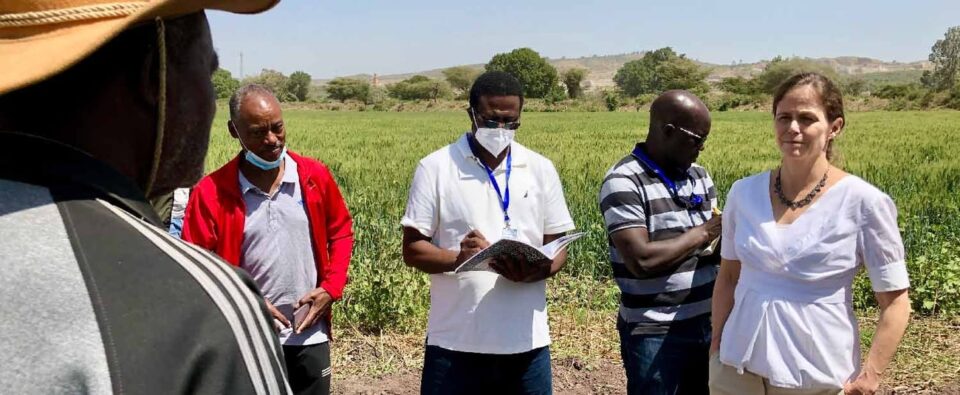This week, the African Development Bank Group will use its extensive expertise and influence to underscore the critical role of agricultural technologies, fertilizers, and healthy soils in fostering sustainable agricultural growth at the Africa Fertilizer and Soil Health Summit in Nairobi.
Leading a delegation in place of Bank Group President Dr. Akinwumi A. Adesina, Vice President for Agriculture, Human, and Social Development Dr. Beth Dunford will be accompanied by specialists in agriculture, agribusiness, fertilizers, and partnerships. The summit aims to address the widespread decline in farmland soil quality and to establish an African Fertilizer and Soil Health Action Plan. Additionally, the summit will adopt an initiative by the African Union Commission to enhance the health and productivity of African soils.
Over 1,500 participants from across Africa, including Heads of State and Ministers, are expected to attend.
Dr. Dunford will speak at a side event titled “Dakar 2 – the State of African Fertilizer and Soil Health: Policy, Governance, and Institutional Framework to Accelerate Country Food and Agriculture Delivery Compacts.” This session, organized by the Leadership for Agriculture network, a partnership of the African Development Bank, the Bill & Melinda Gates Foundation, and the Rockefeller Foundation, will highlight successful efforts in Ethiopia and Mali to scale soil health interventions, increase crop productivity, and enhance rural livelihoods. It will also advance the implementation of Food and Agriculture Delivery Compacts, aiming to achieve food self-sufficiency, stemming from the Dakar 2 Feed Africa Summit held in January 2023.
Dr. Dunford will also deliver opening remarks at a side event on 7 May, jointly organized by the Bank Group, the African Union, and the United States Department of State. This event, titled “Advancing the Soil Initiative for Africa through the Vision for Adapted Crops and Soils,” will showcase the evolving relationship between the African Development Bank and the U.S.-led Vision for Adapted Crops and Soils (VACS), a movement aimed at establishing resilient food systems based on diverse, nutritious, and climate-adapted crops grown in healthy, fertile soils. VACS aligns with the Bank’s Technologies for African Agricultural Transformation (TAAT) initiative, which provides heat-tolerant, drought-resistant, and other climate-smart certified seeds to millions of smallholder farmers in Africa, aiming to produce an additional 120 million tons of food and lift 130 million people out of poverty.
Other speakers at the side events include African Union Commissioner for Agriculture and Rural Development Ambassador Josefa Leonel Correia Sacko and U.S. Special Envoy for Food Security Dr. Cary Fowler.
Bank Director for Agricultural Finance and Rural Development, Richard Ofori-Mante, and Africa Fertilizer Financing Mechanism (AFFM) Coordinator Marie Claire Kalihangabo will participate in the summit’s side event titled “Finance, food, and fertilizer: how the debt crisis affects food and farm inputs markets in Africa.” This session will focus on addressing the challenge of enhancing resilience in food systems against financial shocks.
As part of its Feed Africa strategy to enhance yields and build resilience, the African Development Bank is dedicated to ensuring African farmers have access to necessary inputs, including fertilizers and high-quality seeds.
Dr. Martin Fregene, the Bank’s Director for Agriculture and Agro-Industry, emphasized, “The significance of fertilizer financing in achieving our shared aspirations cannot be overstated. The Africa Fertilizer and Soil Health Summit provides another platform to advance our collective goals – bridging the fertilizer supply gap in Africa and contributing to a thriving agricultural sector.”
Dr. Fregene will speak at the Bank’s Dakar 2-themed side event and the Healthy Soils for Food System Transformation event. He will also make a presentation at another session organized by the Sasakawa Africa Foundation and the African Forum for Agricultural Advisory Service on “Achieving Resilient Agri-Food Systems through Regenerative Agriculture in the Wake of Global Fertilizer Crises and Climate Change.”


